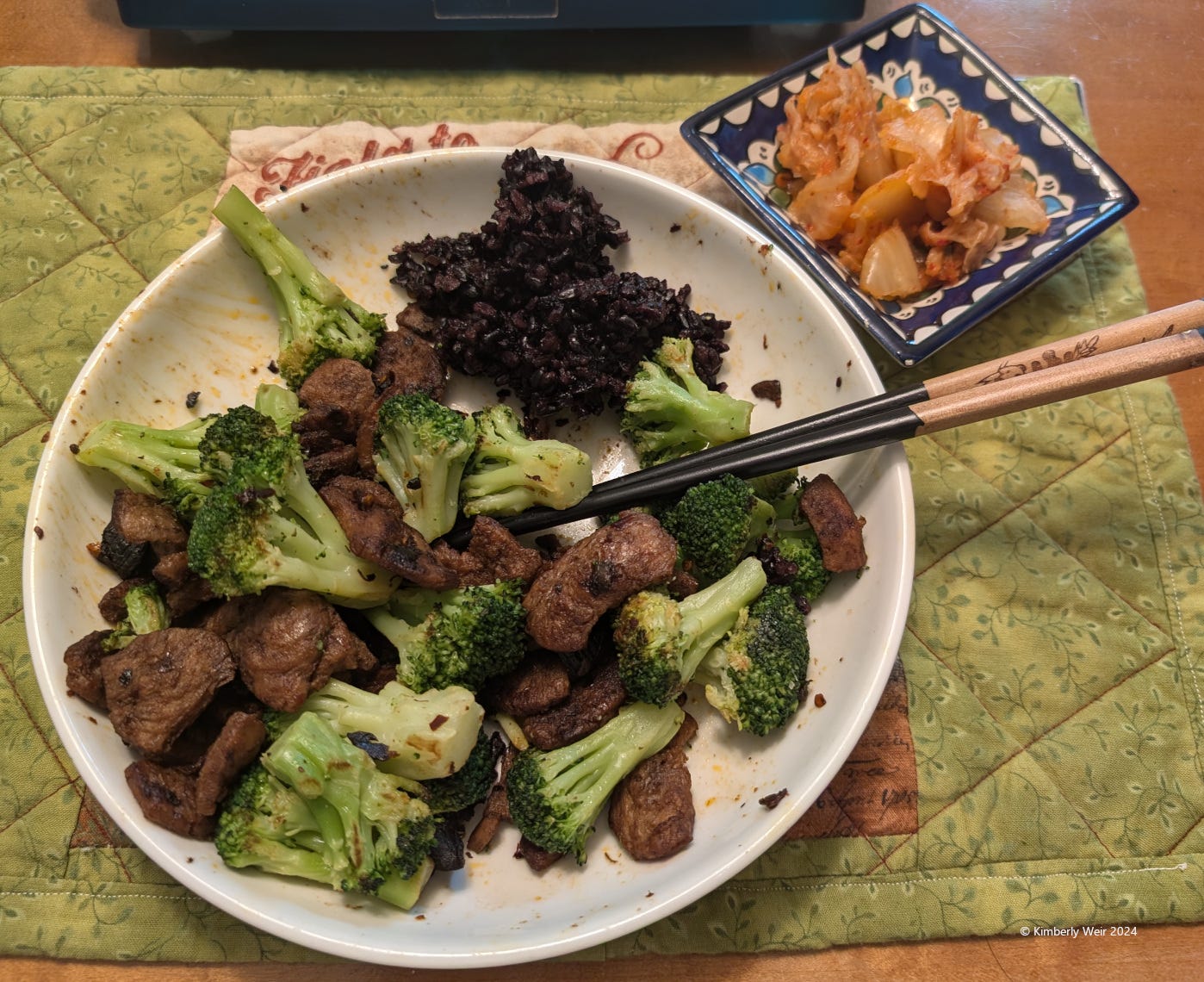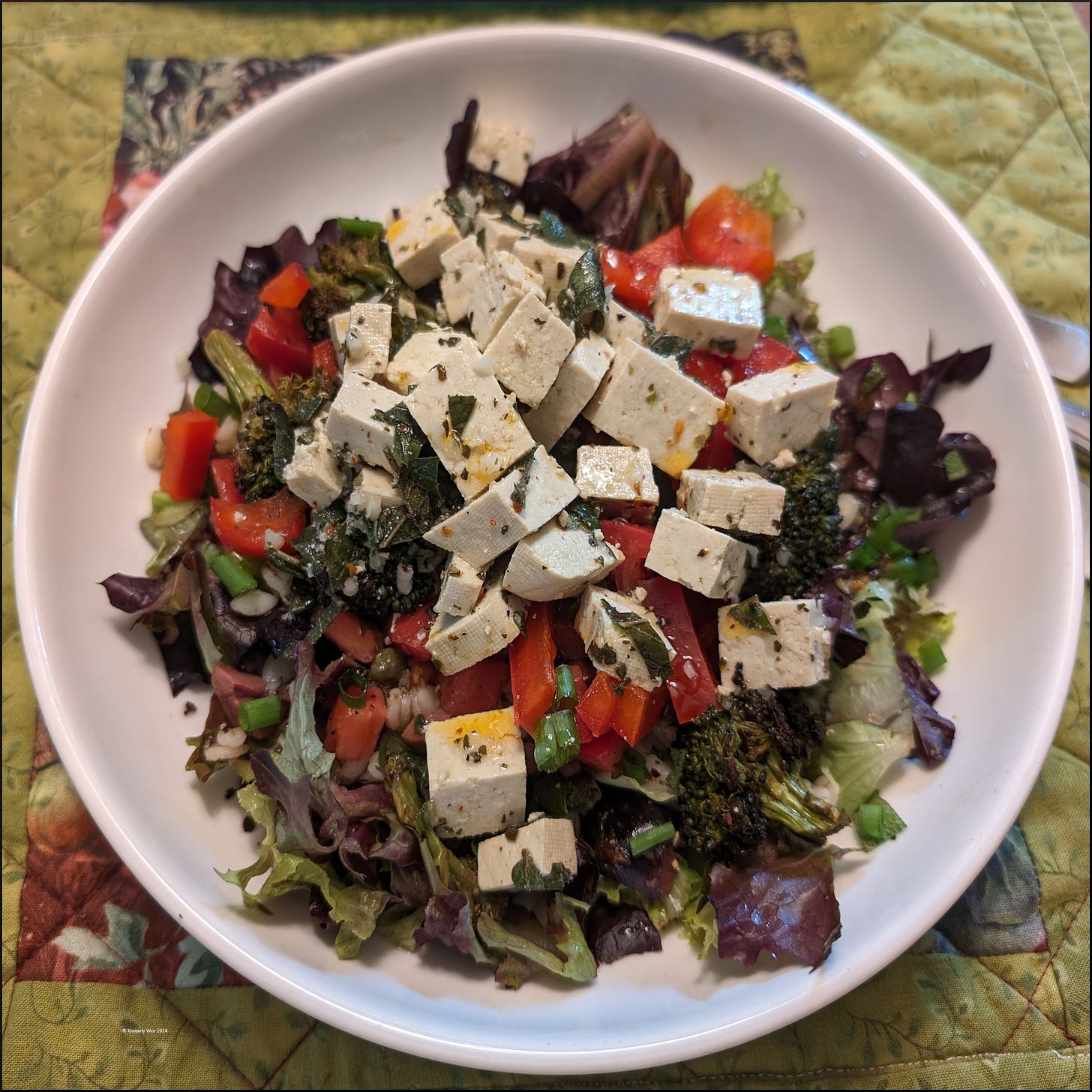Two Easy Changes that Pack a Big Punch
Addressing climate change is daunting, yet reducing carbon emissions is easier to tackle than people realize. Giving up just one hamburger a week and sharing a dessert can make a huge difference.
In our Sustainable Planet episode Our Ambiguous Relationship with Amazon’s Subscribe & Save, Jorden made the argument that being ‘intentional’ when using the service garners numerous rewards by saving time and money. Another episode, Climate Migration: It’s No Longer Just for the Birds, highlighted how more people are being forced to move because of climate change. And unlike some effects of climate change, like hotter days made more bearable by buying an air conditioner, more people in Global North countries are being evacuated and displaced due to the increasing intensity of hurricanes and wildfires.
One question I could count on from students every time I discussed the environment was what they could possibly do that could make a difference. Without question, the two most effective things any person could do is eat less meat and waste less food. The good news is that one is a pretty small thing to ask of anyone and the other is fairly simple with a bit of thought and planning.
It’s Not All or Nothing That Makes the Difference
Eating animal products is such a huge part of life. Celebrations revolve around food which revolves around a meat-based centerpiece. Most people cannot imagine Thanksgiving without turkey. Ham was the centerpiece of Christmas and Easter dinners when I was growing up. The highlight of backyard BBQs is hot dogs, hamburgers, and deviled eggs. Anytime is a good time to go out for ice cream.

Vegetarians typically evoke images of 1970s granola-eating tree huggers. The connotation of vegetarianism with saving the environment or animal welfare persists, but plant-based diets started drawing attention from a different crowd by the turn of the century with the PR campaign Meatless Monday. Historical buffs might recognize the roots of Meatless Monday from the World Wars, times when Americans were called on to voluntarily cut back on meat, sugar, and oil to support the war effort. The modern iteration of this campaign has been around since 2003 when advertiser and public health advocate Sid Lerner wanted to raise awareness about the links between diet and health issues. Studies started stacking up evidence that eating animal products increased the risk of just about every malady: diabetes, cancer, kidney disease, stroke, and various heart conditions. Moreover, the CDC recommends reducing meat in one’s diet to increase the chance of weight loss, helping to tackle a wide variety of health issues.
Adopting a plant-based diet is a lot to ask of anyone. But the idea behind Meatless Monday was that eliminating animal products just one day a week would make a big difference for one’s health. That’s great for humans. On the planetary side of things, it’s not even necessary for people to forgo meat for a whole day. A recent study led by Tulane University found that if 20% of Americans opted for just one meal a week without beef—yes, just beef—forgoing a hamburger or steak would reduce the entire country’s carbon emissions by 10%. Swapping out beef for literally any other meat product can have that much of an impact. The possibility that skipping a hamburger at lunch could make this much of a difference astonishes me since it doesn’t seem like a big deal to eat something different for just one meal a week, but can put such a dent in carbon emissions.

Veganuary is a more recent promotional campaign and much more ambitious in terms of encouraging people to give up meat for the month of January. It’s a great time to get people to commit to a big change—offering the possibility of losing weight, getting in shape, kicking the fast-food habit, finally getting cholesterol levels in check—whatever that New Year’s Resolution is. The Veganuary organization provides meal plans, recipes, a celebrity cookbook, email coaching, and a virtual community to initiate a whole-scale lifestyle change for anyone interested.
Whether people aspire to skip the beef one meal a week, go meatless for an entire Monday, or go all in for a full month of exclusively plant-based fare, the one thing these campaigns have in common is that they get people thinking about the impact of eating meat on their health and the environment. For every person who opts to try a veggie burger or dairy-free ice cream, this decision has a positive impact.
Waste Not, Want Not
The amount of food consumers waste is staggering. In 2022, one-third of all food intended for human consumption in the U.S. was wasted. To put this into perspective, every shopper leaving a supermarket would immediately throw one of three grocery bags full of food in the trash can on the way out of the store. Worldwide, the U.N. estimates humans waste the equivalent totaling $1,000,000,000—that’s one trillion dollars of food every year that could feed one billion people one meal every day.
In the Global South, most food waste happens at the supply side in production. Farmers lack efficient technology for harvesting and storage; countries lack efficient transportation infrastructure. In the Global North, we have little excuse for our excessive food waste because most of the waste happens on the demand side. Grocery stores stock too much food, everything comes in bigger packages and containers, customers demand flawless produce, restaurant portions are too big, and government subsidies support overproduction.

Misinformation about, and lack of regulations setting expiration dates means countless pounds of completely edible food ends up in the landfill. Surveys show that 80% of Americans throw food into the trash based exclusively on the ‘use by’, ‘best by’, or ‘expires’ date, without question. Manufacturers set these days to indicate ‘freshness’ rather than food safety, so consumers end up tossing good food. Instead of relying on these specious dates, we could keep a lot of food out of landfills by doing a few simple things, including using our senses to tell whether something has gone off.
Another thing to bear in mind is that studies show that people are more satisfied with smaller portions of snacks and desserts than they anticipated. Being mindful of our choices helps to avoid food waste. Sharing an appetizer or dessert at a restaurant might provide a more rewarding dining experience while saving food and the planet in the process.
An Easy Trade-Off
In a world where it seems like we, as individuals, can’t make much of a difference, it’s pretty amazing to realize what a big impact two small changes have to help reduce carbon emissions. The latest UN estimates are grim: Without action, the world is heading toward an increase of more than 3 degrees Celsius—double the target 1.5 degrees Celsius necessary to avoid catastrophic consequences. The effects of climate change aren’t just happening in far-off lands. Instead, we’re feeling the effects at home as we, our family, and friends are being hammered by hurricanes and beset by wildfires, giving us compelling reasons to make some changes.
Being more mindful about our choices is definitely easier said than done. We’re constantly bombarded with messages from every direction that we need (or need more of, or a better, or to do more of) this or that to make our lives more complete, happier, better, blah blah blah… On top of that, life’s demands keep us on the hamster wheel, working to tick items off our perpetual “To Do” list, which never ends, no matter how many items we complete. These pressures make it easy for even the most sustainability-minded person to feel overwhelmed when trying to do right by the planet.
The biggest impact we can have isn’t pricey investments like covering the roof with solar panels or converting to on-demand hot water tanks. It’s not avoiding airplanes or swearing off buying new clothes. Of course, these changes would be great, but for many people they are impractical, unaffordable, and/or non-negotiable. But because meat consumption and food waste are the two biggest contributing factors negatively affecting climate change, just forgoing beef one meal a week and reducing food waste can make a big difference.






